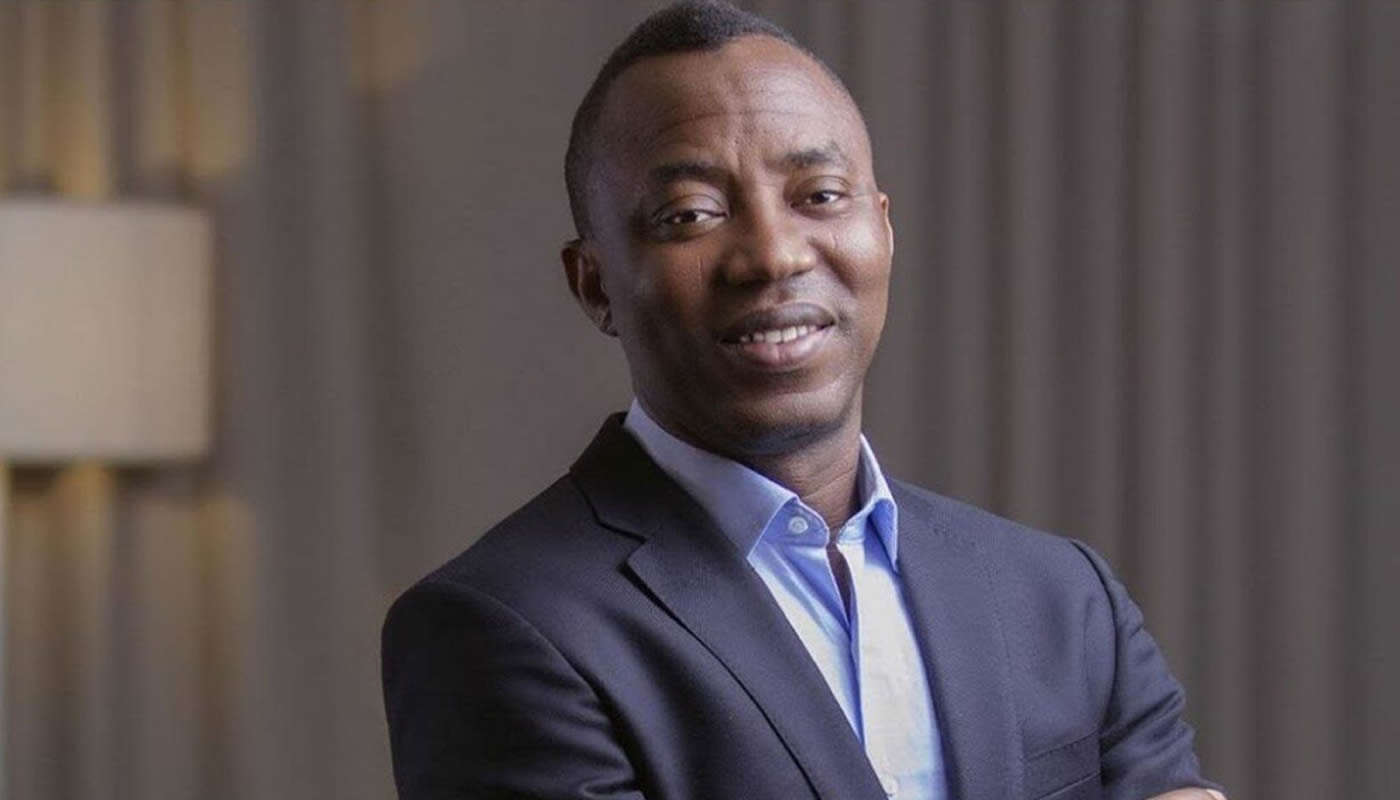
Police Explain Why Omoyele Sowore Was Arrested Over Abuja Protest — “We Acted To Ensure Fairness,” Says Force PRO

In a development that has stirred intense public debate across Nigeria, the Nigeria Police Force has broken its silence regarding the arrest of human rights activist and politician, Omoyele Sowore. The Force clarified that the move was not an act of intimidation or suppression but a procedural step to ensure fairness in the ongoing investigation and prosecution of those involved in Monday’s protest in Abuja.
According to a statement released by the Force Public Relations Officer, Benjamin Hundeyin, Sowore’s arrest was a necessary action taken in the interest of justice and transparency. Hundeyin explained that the protest, which took place earlier in the week in Nigeria’s capital city, led to several disturbances, prompting security agencies to step in and restore order. The authorities, he said, deemed it essential to question all individuals connected to the incident — including its organizers, financiers, and participants — to ensure that the ensuing legal process is balanced and free from bias.
“The Nigeria Police Force wishes to state unequivocally that the arrest of Mr. Omoyele Sowore was not politically motivated, neither was it targeted at silencing dissent or activism. Rather, it is part of a broader investigative process to ensure that justice is served without prejudice,” Hundeyin said in a statement released late Wednesday evening.
Eyewitness reports from the protest scene on Monday indicate that the demonstration, which started peacefully around Unity Fountain in Abuja, escalated after security operatives attempted to disperse the crowd. Protesters had reportedly gathered to demand better governance, accountability, and an end to corruption and insecurity, echoing many of the grievances that have defined public demonstrations in Nigeria over the past few years.
Videos circulating on social media showed Sowore addressing protesters before security operatives intervened. Moments later, chaos erupted as officers fired tear gas into the crowd, dispersing demonstrators and making several arrests. Sowore, who was among those detained, was later moved to the police headquarters for questioning, sparking outrage from civil rights groups and supporters who accused the government of targeting a vocal critic.
However, Hundeyin maintained that the arrest was within the confines of the law and followed due process. “The Nigeria Police Force remains committed to upholding the rule of law and ensuring that every Nigerian’s rights are respected. At the same time, the law must take its course when public order is threatened. The ongoing investigation is aimed at determining the roles played by various individuals during the protest to avoid selective justice,” he said.
The Force PRO emphasized that Sowore’s prominence as an activist and political figure did not exempt him from accountability if his actions, directly or indirectly, contributed to the breakdown of public peace. He assured Nigerians that the investigation would be thorough, transparent, and devoid of political interference.
Meanwhile, reactions have poured in from across the country following the news of Sowore’s arrest. Many Nigerians, especially on social media, have criticized the police, accusing them of using “fairness” as an excuse to stifle activism. The hashtag #FreeSowore began trending within hours of the announcement, with activists and youth groups demanding his immediate release.
Human rights lawyer Inibehe Effiong condemned the arrest, describing it as “a pattern of state harassment against voices of dissent.” He argued that the police’s justification fails to align with the constitutional right to peaceful protest. “It is ironic that the government that claims to promote democracy continues to criminalize civic engagement. If fairness is truly the goal, then every security officer who brutalized protesters should also be arrested,” Effiong stated.
On the other hand, a few commentators have defended the police’s action, arguing that no citizen, no matter how popular, should be above questioning when public demonstrations result in unrest. “We can’t claim to be a nation governed by law and then turn around to exempt some individuals from scrutiny. The police are doing their job. Let the investigation reveal the truth,” one commentator wrote online.
Omoyele Sowore, known for his fearless activism and political engagements, has long been a controversial figure in Nigerian politics. The founder of the Sahara Reporters news platform and presidential candidate under the African Action Congress (AAC), Sowore has consistently used his platform to challenge corruption, authoritarianism, and government inefficiency. His previous arrest in 2019 by the Department of State Services (DSS) over the “#RevolutionNow” protests remains fresh in public memory, a case that drew international condemnation and raised questions about freedom of expression in Nigeria.
Since his release, Sowore has remained a vocal critic of successive administrations, often organizing and participating in peaceful protests across the country. His latest involvement in the Abuja protest once again put him at odds with authorities, underscoring the continuing tension between activism and governance in Nigeria’s democratic space.
Observers note that this incident comes at a time when public trust in law enforcement is already strained. Recent clashes between police and civilians during protests, coupled with allegations of human rights abuses, have heightened skepticism toward the motives behind such arrests. Many Nigerians view Sowore’s detention as symbolic of the broader struggle for civil liberties in the country.
The Force’s explanation that the arrest was meant to “ensure fairness” has not convinced everyone. Critics argue that fairness should also mean protecting citizens’ rights to assembly and free speech without intimidation. “If Sowore’s arrest is about fairness, then fairness must cut both ways,” said a student protester who spoke anonymously. “Where is the fairness when peaceful protesters are teargassed, beaten, and locked up while those in power who fail the people walk free?”
As of Thursday morning, reports indicate that Sowore has been released on administrative bail after several hours of interrogation. His lawyer confirmed that he was in good health and cooperating with authorities, though he maintained that Sowore’s arrest was unnecessary and politically motivated.
The Nigeria Police Force, however, insists that it acted within its mandate and that no one is being targeted unjustly. “This case is not about silencing anyone. It is about ensuring that justice is blind, fair, and balanced,” Hundeyin reiterated.
For now, the incident has once again spotlighted the fragile balance between activism and state authority in Nigeria. As the nation continues to grapple with issues of governance, transparency, and freedom, the arrest of Omoyele Sowore raises pressing questions about the cost of speaking truth to power and whether the promise of democracy in Africa’s largest nation still holds true.
While the police’s statement seeks to frame the arrest as a lawful pursuit of fairness, the court of public opinion appears far less convinced. Many Nigerians believe that true fairness will only be achieved when the rights of citizens to protest and demand accountability are protected without fear of reprisal — a vision that continues to test the very foundation of Nigeria’s democracy.


